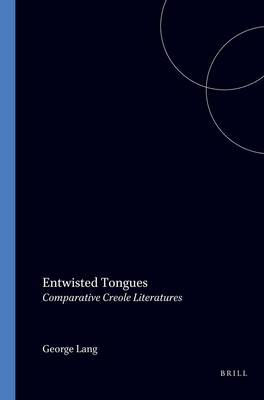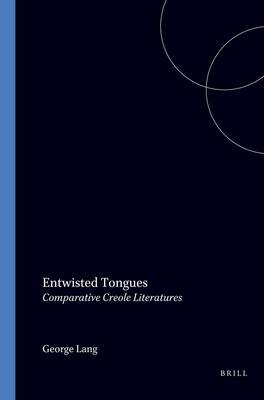
- Afhalen na 1 uur in een winkel met voorraad
- Gratis thuislevering in België vanaf € 30
- Ruim aanbod met 7 miljoen producten
- Afhalen na 1 uur in een winkel met voorraad
- Gratis thuislevering in België vanaf € 30
- Ruim aanbod met 7 miljoen producten
Zoeken
Omschrijving
Cultural creolization, métissage, hybridity, and the in-between spaces of postcolonial thought are now fundamental terms of reference within contemporary critical thought. Entwisted Tongues explores the sociohistorical and cultural basis for writing in creole languages from a comparative framework. The rise of self-defining literatures in Atlantic creoles offers parallels with the development of national literatures elsewhere, but the status of creole languages imposes particular conditions for literary creation. After an introduction to the history of the term creole, Entwisted Tongues surveys the history of the languages which are its focus: the Crioulo of Cape Verde, Sierra Leone Krio, Surinamese Sranan, Papiamentu (spoken in the Netherlands Antilles), and the varieties of French-based Kreyol in the Caribbean. The chapter Deep Speech turns around a trope ubiquitous in creoles, one conveying the sense that their authentic registers are at the furthest remove from the high cultures with which they are in contact; Diglossic Dilemma explores the contradictions inherent in this trope. The remaining analysis explores numerous nooks and crannies of these marginal but fascinating literatures, submitting that creoles and literature in them are prima facie evidence of the human will to articulate speech and verbal art, even in the face of slavery, oppression and penury.
Specificaties
Betrokkenen
- Auteur(s):
- Uitgeverij:
Inhoud
- Aantal bladzijden:
- 332
- Taal:
- Engels
- Reeks:
- Reeksnummer:
- nr. 23
Eigenschappen
- Productcode (EAN):
- 9789042007376
- Verschijningsdatum:
- 1/01/1999
- Uitvoering:
- Paperback
- Formaat:
- Trade paperback (VS)
- Afmetingen:
- 150 mm x 220 mm
- Gewicht:
- 589 g

Alleen bij Standaard Boekhandel
+ 375 punten op je klantenkaart van Standaard Boekhandel
Beoordelingen
We publiceren alleen reviews die voldoen aan de voorwaarden voor reviews. Bekijk onze voorwaarden voor reviews.











